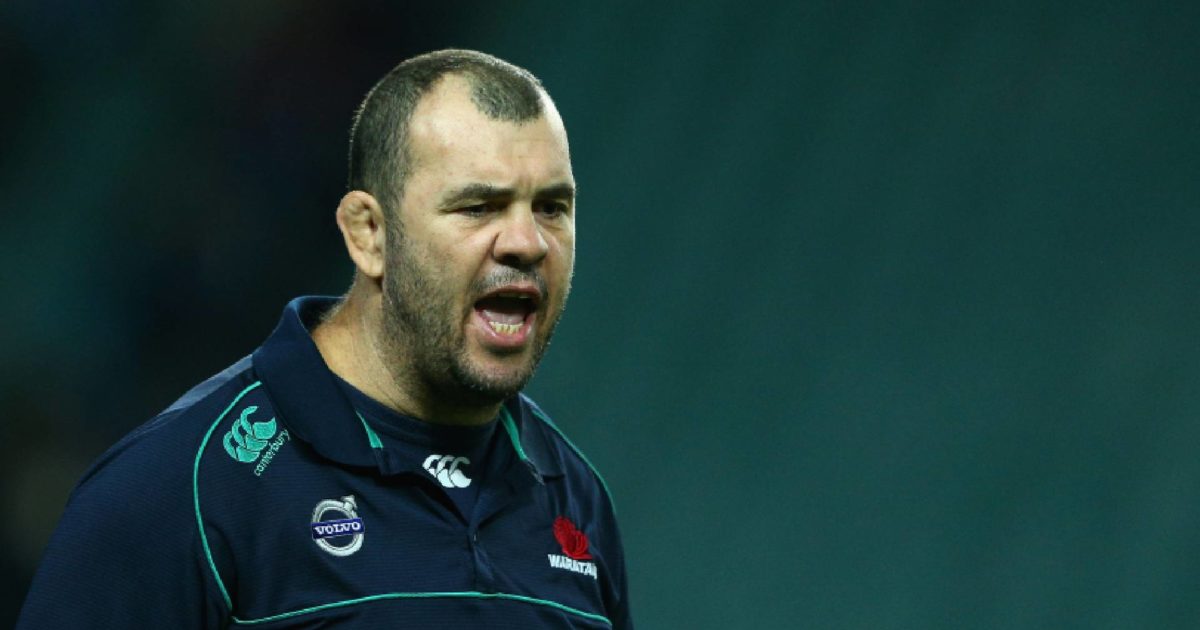'Easy money': Michael Cheika reveals fallout with Rugby Australia over proposed Super Rugby overhaul

Former Wallabies head coach Michael Cheika has revealed he advocated strongly for an overhaul of the beleaguered Super Rugby competition, but did so to no avail during his time at Rugby Australia.
Speaking on the offtheball.com podcast, Cheika said he questioned rugby authorities in Australia over their ongoing acceptance of what he described as “easy money” by expanding Super Rugby.
Since the inception of the Super 12 in 1996, the number of teams in the competition grew three times over the course of two decades, with the induction of the Western Force, Cheetahs, Melbourne Rebels, Southern Kings, Sunwolves and Jaguares making it an 18-team league by 2016.
The majority of those sides, excluding the Rebels and Jaguares, have since been culled as the competition dwindled in quality and fan interest.
The impending expulsion of the Sunwolves at the end of this year will see Super Rugby revert back to a 14-team format, but Cheika believes the competition needs to have a trans-Tasman focus.
“We’ve got bigger and bigger because we wanted more TV money, more TV money,” the 2014 Super Rugby title-winning ex-Waratahs coach said.
“The reality is we’ve had Super Rugby, it’s been losing money for all the clubs hand over foot and we’ve maintained our presence in that tournament.
“This is where I fell out a fair bit with Australian Rugby. A few years ago when they were making the last arrangement around what the next Super Rugby was going to look like, I was adamant about changing towards trans-Tasman, and Japan as well.”
It’s a sentiment that is supported by former All Blacks star Andrew Mehrtens, who doubled down on Cheika’s comments on the podcast.
“New Zealand is going to benefit ultimately from a revamped Super Rugby, and Australia will too,” the South African-born 70-cap playmaker said.
https://www.instagram.com/p/CARNkxbgP-h/?utm_source=ig_web_copy_link
“I’ve said for quite a while now that while the competition has expanded, it hasn’t expanded in a consistent or logical way.
“It’s just added a couple of teams here and there. It went to 14, 15, then it went to 18 and dropped back down.
“The hindrance in Super Rugby is that there are games in Argentina now, and the time zone is not great for New Zealand and Australia, the same with South Africa.
“Not many people are watching even their own teams at 3am in the morning coming out of South Africa.”
Since leaving his role as Wallabies loss after being unceremoniously dumped out of last year’s World Cup in the quarter-finals by England, Cheika has crossed codes to become an assistant at the NRL’s Sydney Roosters.
He said that rugby league’s premier club competition has made itself far more visible to Australian audiences than union via its free-to-air element, which is almost entirely absent in Australian rugby as they look to maximise their broadcast income.
“I think we probably go for the easy money sometimes and I understand why. It’s not easy to give up that nice lollipop, that big TV money,” Cheika said.
“As much as (Super Rugby) is a great competition, it’s not sustainable and so it’s been proven before COVID-19.”











































































